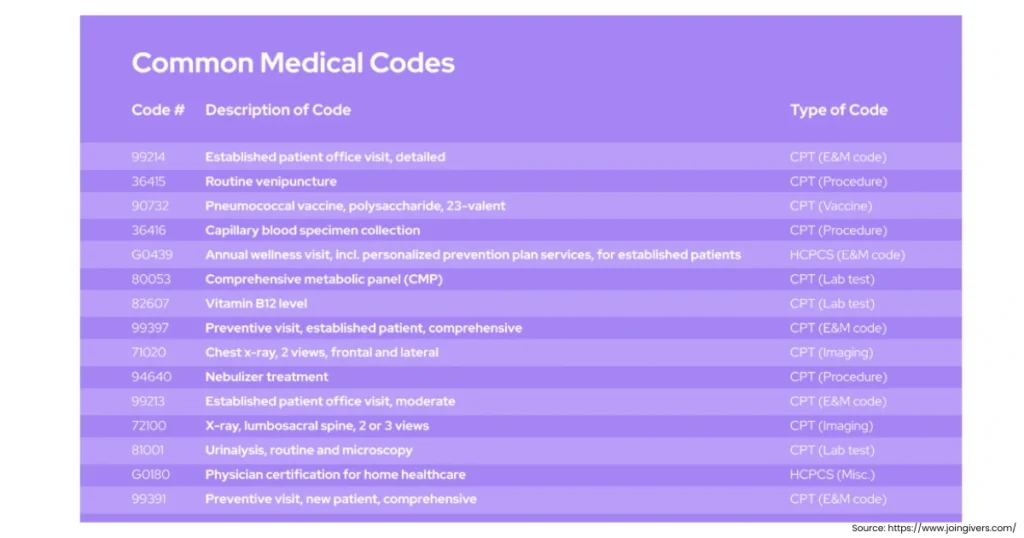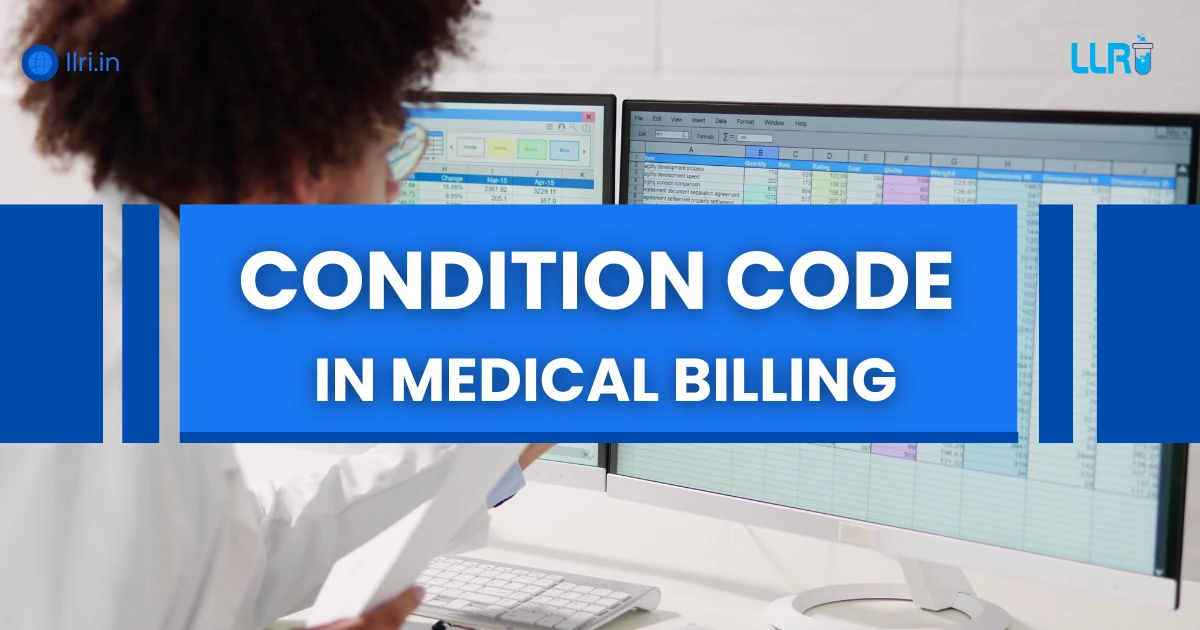Condition Code in Medical Billing: Accuracy in healthcare billing isn’t just about numbers – it’s about trust, compliance, and smooth financial operations. That’s where condition code in medical billing steps in. Hospitals, clinics, and insurance providers rely heavily on these codes to classify claims correctly, and one small mistake can lead to rejected claims or delayed payments.
You might be wondering: What are condition codes in medical billing and why are they so important? Well, let’s take a look at how they work, what each type means, and how you can master them if you’re considering a career in medical coding.
Condition Code Definition in Medical Billing
The condition code definition in medical billing refers to a two-digit code that identifies specific circumstances or situations that may affect how a healthcare claim is processed by an insurance company.
Think of it this way: condition codes act like flags that give extra information about a patient’s treatment, the setting of the service, or the status of the claim. Without them, payers like Medicare or private insurers wouldn’t have the full context to make payment decisions.
For example, when a hospital has to convert a patient from observation status to inpatient status, the code 44 (Condition Code 44 Medicare) is used. This code helps insurers process the claim accurately.

What Are Condition Codes in Medical Billing?
Now, let’s answer the big question: what are condition codes in medical billing?
Condition codes are predefined identifiers used in claim forms, primarily on the UB-04 form (the standard form for institutional providers). These codes are not optional – they are mandatory in certain cases to provide context and avoid denials.
Here’s why they matter:
- They communicate specific situations, such as non-covered services, billing errors, or patient-related circumstances.
- They help insurance providers classify claims quickly and accurately.
- They ensure compliance with regulatory requirements.
Common Types of Condition Codes
Condition codes cover a wide range of scenarios. Let’s break down some of the most commonly used ones.
1. POS Condition Code 59
The POS condition code 59 is used to describe a “distinct procedural service.” It signals that a procedure or service was distinct or independent from other services performed on the same day.
For example, if a patient undergoes two separate procedures that might otherwise be bundled together, this condition code helps differentiate them so that each can be billed appropriately.
Misuse of POS condition code 59 can lead to audits, so accurate documentation is essential.
2. PMB Conditions ICD 10 Codes
Another area where condition codes intersect with billing is in PMB conditions ICD 10 codes. PMB stands for Prescribed Minimum Benefits, a concept widely used in healthcare to ensure essential conditions are covered.
The ICD-10 codes attached to PMB conditions allow healthcare providers to classify diagnoses correctly. Linking them with the right condition codes ensures that patients receive the entitled coverage while providers are reimbursed correctly.
For instance, if a chronic disease falls under PMB coverage, but the condition code is missing, the insurer might deny the claim.
3. Condition Code 44 Medicare
The condition code 44 Medicare is among the most discussed codes in the medical billing community. It’s used when a hospital changes a patient’s status from inpatient to outpatient.
Here’s a simple scenario:
- A patient is admitted as an inpatient.
- Later, doctors decide the inpatient status was unnecessary, and the case should be billed as outpatient.
- Instead of cancelling the entire claim, condition code 44 Medicare is applied to adjust the status.
This prevents unnecessary rejections and ensures Medicare pays correctly.

Why Are Condition Codes Important?
So, why should medical billers and coders pay close attention to condition codes?
- Financial accuracy: Incorrect condition codes can result in underpayments or claim denials.
- Compliance: Regulators, especially Medicare, expect precise coding.
- Patient satisfaction: A wrongly denied claim can put financial stress on patients.
A report by the American Health Information Management Association highlighted that nearly 15% of claim denials are linked to coding errors, including improper condition codes. That’s a staggering number that shows how much is at stake.
Examples:
- A hospital forgets to use POS condition code 59 for a distinct service. The claim is bundled, and payment is reduced by half.
- A patient with a chronic PMB condition doesn’t get reimbursed because the hospital missed applying PMB conditions ICD 10 codes.
- A billing team doesn’t apply condition code 44 Medicare, resulting in claim rejection.
In all these cases, one small code determines whether the hospital gets paid on time or faces lengthy appeals.
How To Build a Career in Medical Billing and Coding?
If all of this sounds confusing and hard to understand, don’t worry, you can master it with the right training! At LLRI, we offer a Pro Advanced Diploma in Medical Coding course that covers everything from basic terminologies to advanced billing practices.
Pro Advanced Diploma in Medical Coding
- Duration: 7 Months (6 Months Technical + 1 Month Corporate Training)
- Modules Include:
- Corporate Etiquette
- Non-Technical Training
- Introduction to Medical Coding
- Medical Terminologies
- Anatomy & Physiology
- Advanced Medical Coding Training
- General Coding Guidelines
- ICD-10 CM, ICD-11
- CPT, HCPCS, Modifiers
- Medical Billing
- CPC Certification Training
This program is designed to make you industry-ready, combining technical expertise with professional corporate skills.
And yes – check out our student testimonials to see how others have transformed their careers through LLRI.
Medical Coding Online Course in India
Now, you might ask: Can I learn all this online? Absolutely.
With LLRI’s medical coding online course in India, you don’t need to relocate or compromise your current commitments. Online learning makes it easy to attend classes, interact with trainers, and practice coding exercises from the comfort of your home.
Healthcare companies across India and abroad are actively hiring certified coders trained online. The demand is so high that online courses are now a mainstream choice for aspiring coders.

Is Medical Coding a Good Career?
This is a common question among students and professionals considering a career switch. So, is medical coding a good career?
The short answer: yes.
Here’s why:
- The healthcare industry is growing rapidly in India.
- Medical coding and billing jobs are less affected by automation compared to other fields.
- Salary packages are competitive, especially for certified coders.
- Career growth opportunities include roles like medical billing specialist, coding auditor, and compliance officer.
As one of our alumni shared: “I was a graduate with no clear path. After joining LLRI’s program, I not only secured a job but also found stability and growth in my career.”
On A Final Note…
Mastering condition code in medical billing isn’t just about memorizing numbers, it’s about understanding their context and applying them correctly. From POS condition code 59 to condition code 44 Medicare, these small but powerful identifiers determine whether a claim is approved smoothly or delayed unnecessarily.
If you’re serious about making a mark in this field, consider joining LLRI’s Pro Advanced Diploma in Medical Coding course. With structured learning, real-world practice, and corporate training, you’ll be ready to handle complex billing situations confidently.
So, if you’ve ever wondered “is medical coding a good career?” – the answer lies in your willingness to learn and apply. And the first step could be enrolling in our medical coding online course in India.
FAQs
1. What are condition codes in medical billing?
They are two-digit identifiers used to give context to claims, ensuring accurate processing by insurers.
2. What is the condition code definition in medical billing?
It refers to standardized codes used on claim forms to describe special conditions or circumstances.
3. When is POS condition code 59 used?
It’s applied when procedures are distinct and shouldn’t be bundled together.
4. What do PMB conditions ICD 10 codes cover?
They cover essential medical conditions under minimum benefit schemes using ICD-10 codes.
5. How does condition code 44 Medicare work?
It’s used to change patient status from inpatient to outpatient without canceling a claim.

